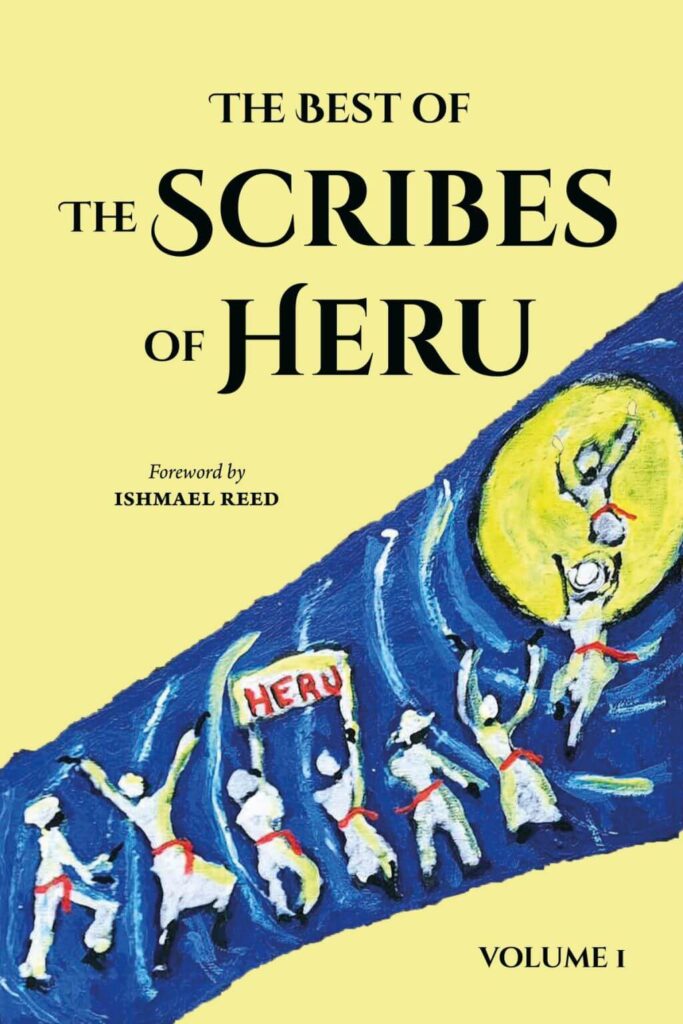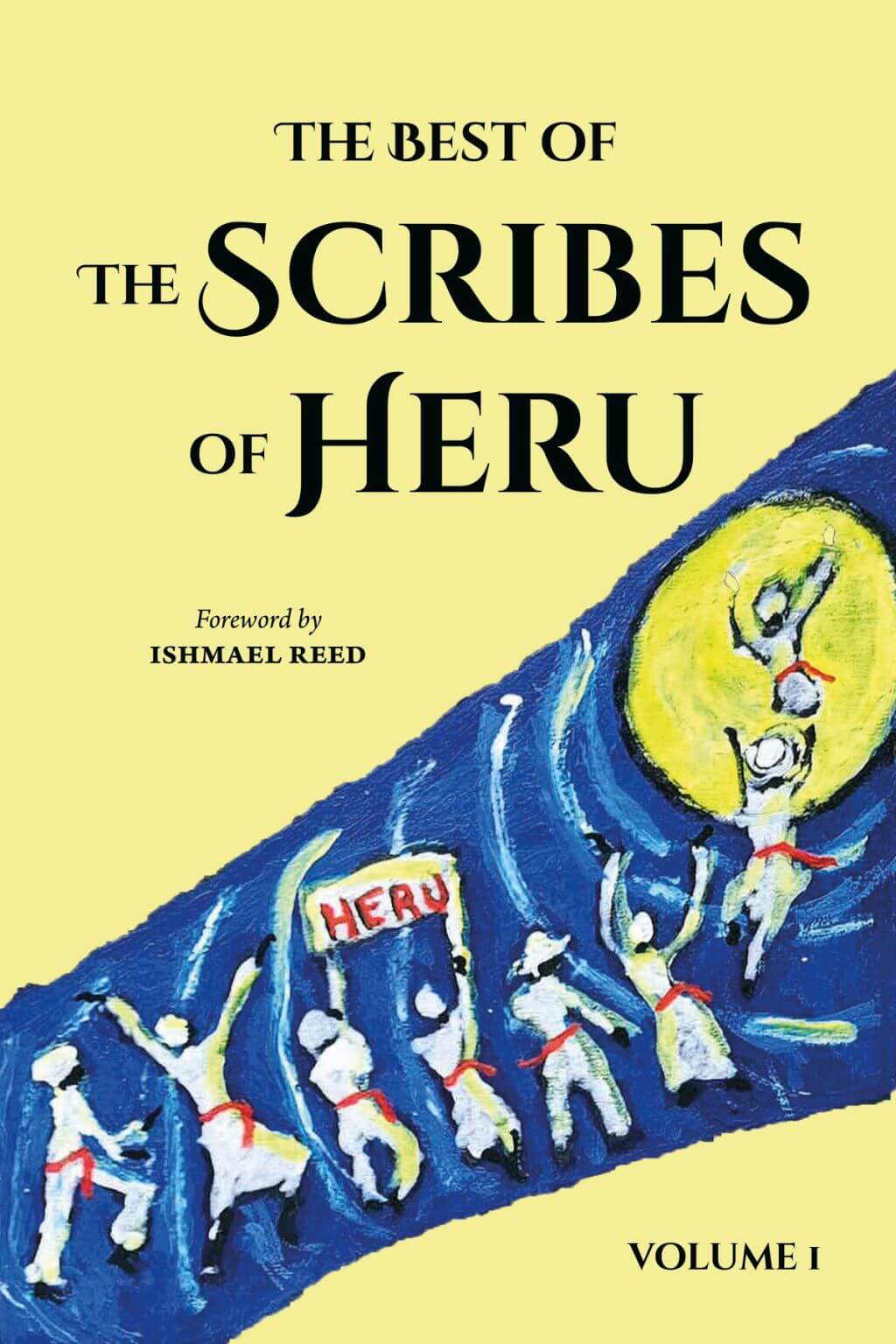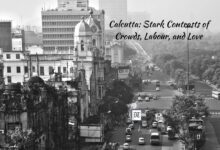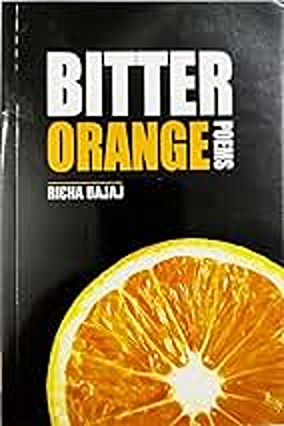Candice reviews “The Best of the Scribes of Heru – Vol. 1,” an anthology celebrating unfiltered Black writers’ experiences, challenging stereotypes, exclusively for Different Truths.

This first volume, The Best of the Scribes of Heru, is their inaugural published collection as this group. There are electric words here, a simmering power that cannot be ignored, and it’s been harnessed palpably in this slim volume of writings. Every single member has a rich tapestry of experience, and these are translated into stories that wring the lifeblood from you as you read, and then reignite you passionately with their uncompromised truths. A reminder that calling yourself ‘black’ is not just one colour but a myriad of different shades of experience, language, voice and culture:
“A lot of the people that were involved, the singers, storytellers, and spoken word—all come from traditional upbringings … from the community, from the native community… they have that foundation of being connected genuinely, through the language and the traditional arts … and through the mentor programs, the social workers. We have so many people of diverse backgrounds, but the thing that brings us together is the music.” (Bernie Worrell’s Final Flight, Rickey Vincent).
We’re behind the curve in terms of equity, and as such, forefronting writers of colour isn’t overcompensating…
We’re behind the curve in terms of equity, and as such, forefronting writers of colour isn’t overcompensating; it’s protecting voices that were obliterated or ignored throughout time. What we can learn is that people of colour can do this for themselves, they don’t need former oppressors to help them. At the same time, to reach the top of the pile, we need those at the top to pull us up, because the system is stacked against us and nepotism is real. So how do we achieve seemingly opposite goals?
Is it offensive to ask for a space for your voice in this world? Those who have lived as BIPOC have witnessed the ivory towers that exist in the writing world. There is both tokenism and patronising elements to the system of publishing folk of colour, and it can feel like a form of appropriation when white people try to help people of colour and find themselves making it worse as they attempt to ‘school’ and come off as patronising as those who are racist. There are just some things that the populace should handle rather than self-appointed white guardians. You can’t emulate direct experience, even with massive empathy. You can’t know what it’s like to be someone you’re not, only those who are, can:
“At the age of fifteen, an older man had taken his mother to Mississippi without Ma’Dea’s consent. She was abused and impregnated by either this man or some other person he leased her out to. Left for dead in the woods, Celestine had Lee in a shack, but not on the ground between a tree and a stump of a tree, as he was teased about.” (Sherman Lee Brown, by Jacqueline Elizabeth).
Black literature in America has had a backbone, through legends like Nora Neale Huston and Langston Hughes.
Black literature in America has had a backbone, through legends like Nora Neale Huston and Langston Hughes. Such talent is not as easily infused as one might wish, because, as with feminists, the system was created by white men, and as such, everyone has had to play by those rules. When you have to edit yourself to be palatable to an audience, if it doesn’t reflect you, then you lose something. Just 20 years ago we were reading Toni Morrison, and I recall the teachers treating her writing as an exotic animal rather than contemporary. That’s because Morrison’s work wasn’t contemporary for her white writer friends. But how do we locate the wealth of a writer and their history, without treating them as exotic animals, which smacks of unsaid racism and prejudice?
Editor Thurman Watts has wielded his gift tightly…

Editor Thurman Watts has wielded his gift tightly; with anthologies, it’s too easy to have too much, and this isn’t a kaleidoscope of everything, it’s an offering of the best, literally. And what’s especially enjoyable is the diversity of writing, from plays to short stories, poetry, imagery, and even piano chords. As the introduction says, it’s the best and worst of us, and anything less wouldn’t be honest or complete, it would be a facsimile of truth, and this collection demands a less modest truth.
If you are not a person of colour, what do you know about the lives of people of colour that you didn’t learn at school? Can you say you understand the lived experience of people of colour? How important is it that you can? Can any of us say we know another’s life story unless we sit quietly and witness them? So, The Best of the Scribes of Heru proffers lived experience in a startlingly unedited way that gets under your skin, regardless of colour.
For example, in the short story No Word in Her Wake, (Thurman Tee Watts), there’s an almost unbearable vividness to the recounting of a young woman’s death. The way this is described is with the voice of someone who knows how it is for black people in terms of how seriously a murder is investigated, to what extent anything is done, and all the shut-down people who do nothing. We’re talking about the essence of a life here, a black life, and it’s at the heart of Black Lives Matter to witness what isn’t done when a black person dies. Surely this evokes all the times we’ve seen a double standard—a dismissal of the importance and equality of a black life.
And do the myriad variations within the term ‘black’ coalesce into something recognisable?
Now, how does black writing locate itself in time? And do the myriad variations within the term ‘black’ coalesce into something recognisable? For example, if you don’t know a writer is black, would you know? I think many times you would because it is the direct experience conveyed, using words that might once have been condemned by the mainstream, using cadence and rhythm, musicality, and carved-out ancestry, to claim your voice, different and legitimate. If we build a literary canon, then we also form its identity through the sharing of those words, just as black music has. It has a fervour and unapologetic nuance that also sets it apart from what existed before. You could say black writers are revisionists of their history as told by white people.
What I took away, aside from the above, was how fluid this collection is. It’s not stifled or subscribed to like so many academic anthologies. It’s breathing, alive, and has motion. That’s also at the heart of black writing, and within the words, there is music, wisdom, and acknowledgement that the old rules no longer apply. Where else would you find the history of drumming and a lesson on drumming, along with how to quilt and the history of quilting (in the black community, which was largely ignored when quilting was considered a white-only activity) interspersed with musicians, beat poets, and storytellers of all lineages? This is a multi-hued collection, not linear, not all one pantone or country, but a reflection of the modern black writer, who is so much more than the abounding stereotype.
… history must be told by those who lived it, not the conqueror or the bystander, but the heart of the experience, and history can’t have rules.
As Joyce Rages, one of the writers within, illustrates; history must be told by those who lived it, not the conqueror or the bystander, but the heart of the experience, and history can’t have rules. If you want to insert a poem or song halfway through to illustrate what you’re saying, do it. Rules reduce the flow. In her short story Wrapped in Love, Rages describes quilting in African American communities. A colleague recently created a website called Diversity in Quilting because it recognised that African Americans and others added to this art form but were ignored. We change things by being the change we want to see.
David Rages writes in If I Could Write My Heart, about this exact dilemma when he says:
“I tried to write my heart. Spread it out upon the finest Onion skin paper The world should see. But like a flash flood Riding on the back of a Sudden thaw, It washed away the fine paper.”
Where does history go? Writer Alan Laird paints the black man’s experience in Planting of the Dogwood Trees…
Rages nails it. How often through history have minorities and non-minorities who were treated as minorities been subjugated, relegated, shut down, or patronised? Where do the voices go? Where does history go? Writer Alan Laird paints the black man’s experience in Planting of the Dogwood Trees, where his recollection of his childhood is so uncannily vivid that we are reminded that it wasn’t just Huck Finn who lived in the countryside and had adventures, black lives existed at the same time, but nobody wrote of them. Now they are, and it’s not going to go back to the days of suffocation and obliteration. If these collectives of excellent, fierce writers exist, there will be no backtracking.
“We passed through vast cotton fields with ebony bodies raising and lowering, amidst white cotton balls, like large flocks of feeding birds. I could see heat waves rising from the ground, under the close watch of a blazing sun. I wondered why they would work so hard in such heat.”
The Best of the Scribes of Heru (Volume 1) features the work of: Jacqueline Elizabeth, Alan Laird, David Rages, Joyce Rages, Bill Summers Rickey Vincent, and Thurman (Tee) Watts. Foreword by Ishmael Reed.
Cover visual sourced by the author






 By
By
 By
By
 By
By
 By
By